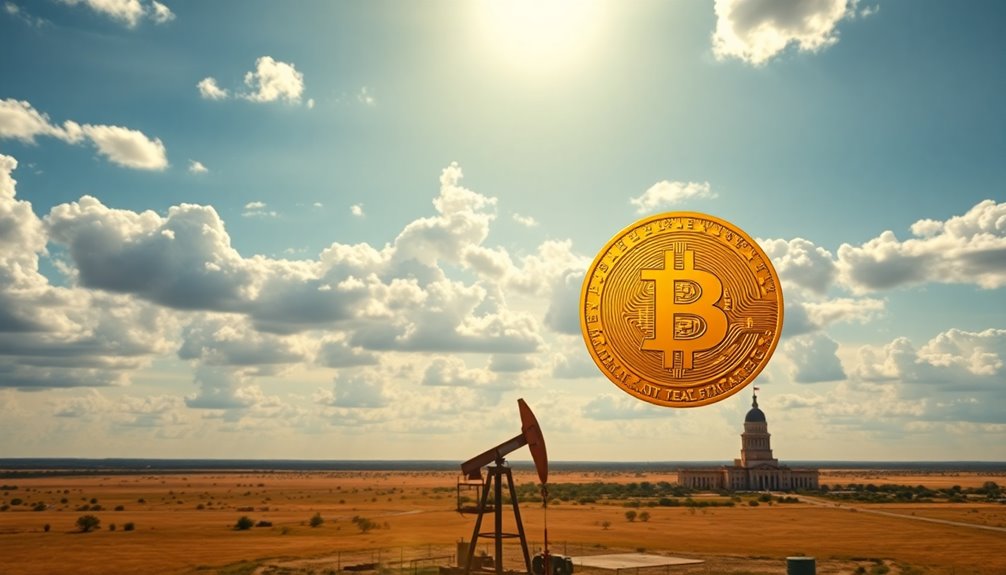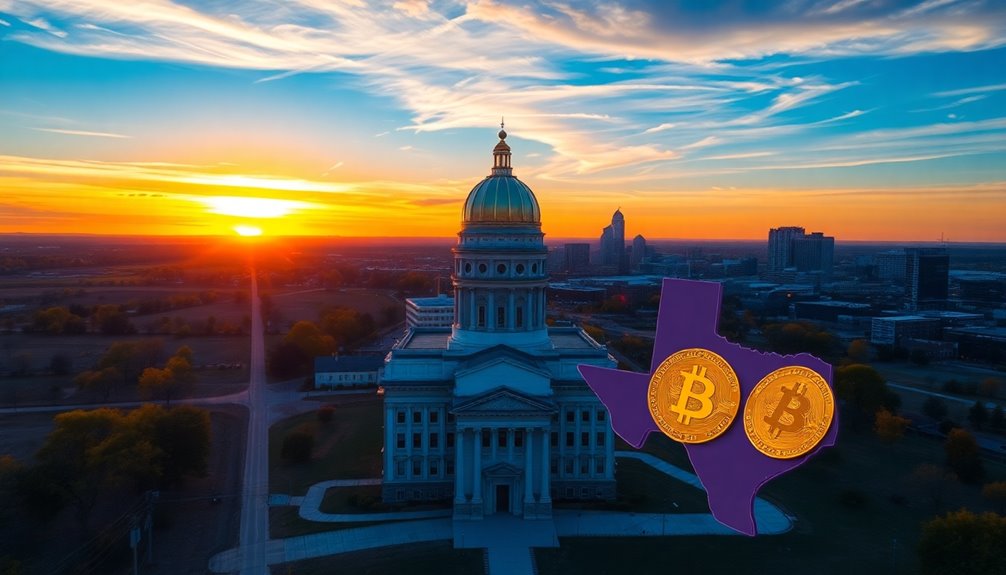Texas is stepping into uncharted territory by considering the use of public funds for Bitcoin reserves. With the introduction of Senate Bill 21, you're witnessing a shift that could reshape the state's economic strategy. This move isn't just about investing; it's about enhancing financial stability and combating inflation. But what are the potential risks and rewards of this bold approach? The implications for Texas and beyond are worth exploring.

As Texas moves to embrace the digital age, the introduction of Senate Bill 21 (SB 21) signals a bold step towards establishing a Texas Strategic Bitcoin Reserve. This legislation allows the state to invest in cryptocurrencies, specifically targeting those with a market capitalization of at least $500 billion over a 12-month period. Right now, Bitcoin is the only cryptocurrency meeting this requirement, boasting a market cap of around $1.9 trillion.
The primary goal of the reserve is to enhance financial stability and serve as a hedge against inflation and economic volatility. With enthusiastic support from Governor Greg Abbott, the proposal reflects a growing interest in integrating cryptocurrency into state financial strategies.
You might find it reassuring that the Texas Comptroller's Office will oversee the reserve, ensuring its proper management through a five-person committee. This committee will implement security measures like cold storage and regular audits to maintain transparency and safety.
The legislation takes a progressive approach by removing the previous $500 million annual cap on Bitcoin acquisitions. This flexibility allows Texas to adopt more dynamic investment strategies. Although Bitcoin is the only eligible cryptocurrency at this moment, the bill paves the way for future investments in other digital assets that meet the market cap requirement, broadening the potential for diversification in the state's financial portfolio. Currently, Bitcoin's market cap is approximately $1.9 trillion, which highlights the significant opportunity for Texas to capitalize on this rapidly evolving market.
The economic impact of the Bitcoin reserve could be significant. By diversifying its financial assets, Texas reduces its reliance on traditional financial instruments, which can be particularly beneficial during uncertain times.
It could stimulate local economies, especially considering that Bitcoin mining facilities, like Riot's in Milam County, are already making notable contributions to employment and public school funding.
Moreover, a Bitcoin reserve could enhance Texas's autonomy in managing its fiscal future and serve as a counterbalance to federal financial pressures. As mining facilities grow, they've become crucial local employers, showcasing the resilience and job creation potential tied to this emerging industry.
Senate Bill 21, introduced by Senator Charles Schwertner, is set to be voted on in March 2025, with Lieutenant Governor Dan Patrick prioritizing its passage. As Texas joins other states exploring cryptocurrency integration into public finance strategies, you can see how this move could become a game-changer for the state's economic landscape.










